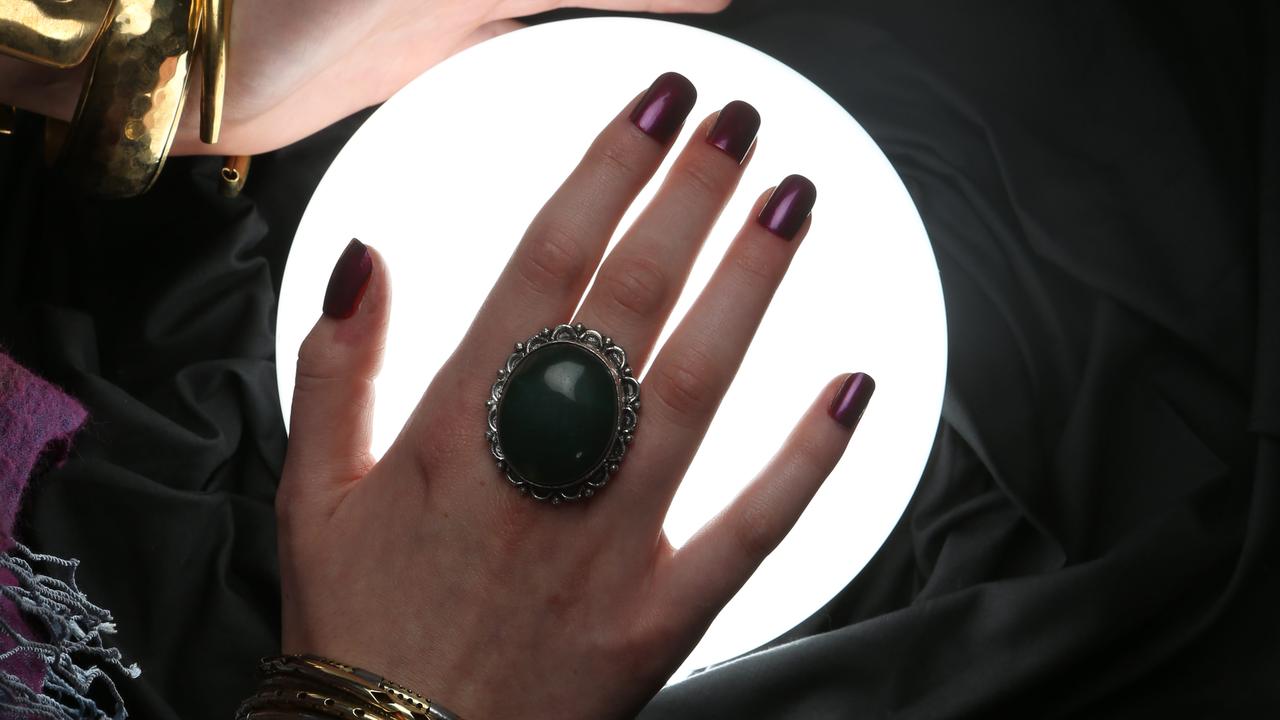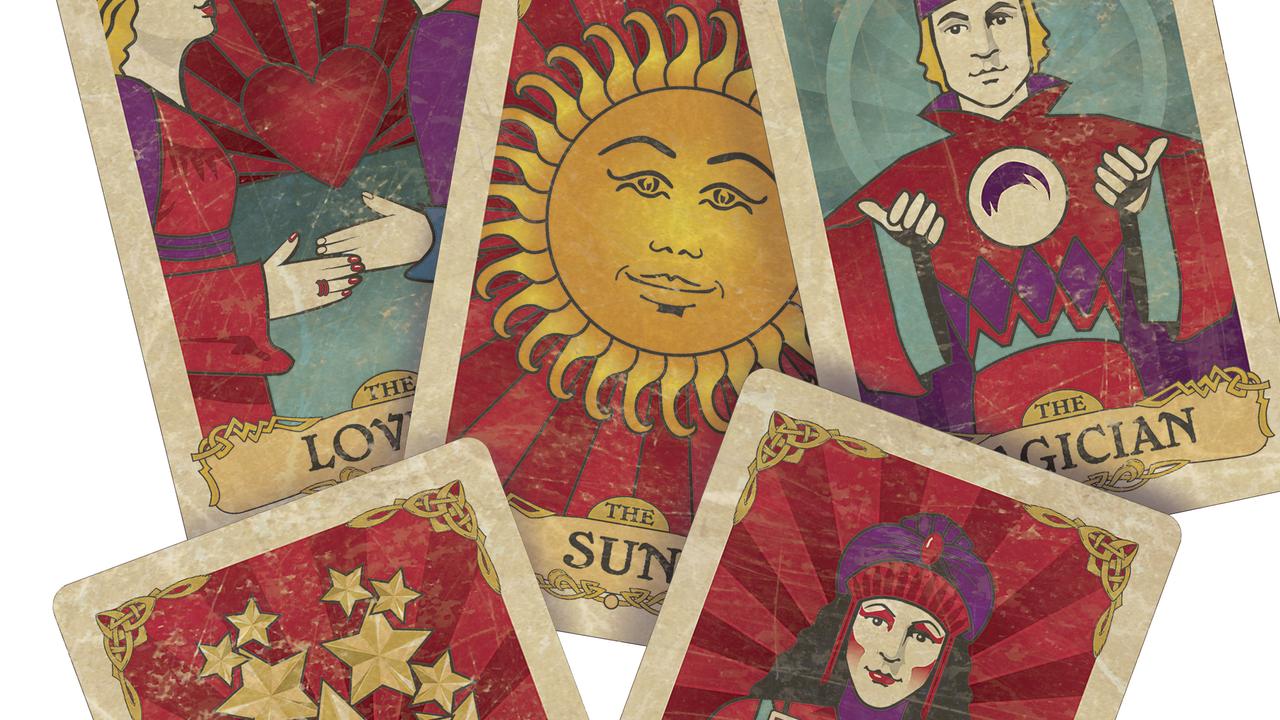You won’t believe how much money fortune fraudsters have tricked Aussies into coughing up
From ‘in the stars’, straight into their pockets: The fortune fraudsters preying on Aussies with fake promises of a better life through help from the spirit world.

News
Don't miss out on the headlines from News. Followed categories will be added to My News.
Fortune fraudsters are scamming everyday Aussies into handing over thousands of dollars by promising to change their luck, offering up winning lottery numbers, lucky charms and the removal of curses.
Australian Competition and Consumer Commission (ACCC) Scamwatch data reveals Australians have been tricked out of more than $1m since 2019 by psychic and clairvoyant scammers.
More than 630 swindles have been reported between then and now, with scammers mostly interacting with their victims via social media, email or over the phone, but in some cases also through face-to-face consultations.
Online watchdog, eSafety commissioner Julie Inman Grant, said psychic scams could look and sound very real.
“Over the past two years, during the Covid pandemic, we’ve seen a spike in something known as online ‘social engineering’, which involves the exploitation of human psychology to manipulate or encourage certain behaviours, cause harm, or elicit gain online and they can be quite sophisticated in nature,” she said.
Consumer Affairs Victoria has received 16 complaints and queries about psychics in the state over the last two years.
“The Australian Consumer Law applies to all Victorian traders, including those providing psychic or spiritual services,” a spokesperson warned.
Women make up more than 50 per cent of all scam victims in Australia, with more than 70 per cent of psychic swindlings also reported by women; mostly by those between the ages of 25 and 44.
The ACCC said some scammers claimed to foreshadow a positive life event or future trouble, with many claiming to offer a solution to predicted financial woes, such as providing winning lottery numbers, a lucky charm, the removal of a curse or jinx or through ongoing spiritual protection and guidance.
Some scammers threatened to “invoke a curse or bad luck charm”, if people refused to pay.
“Scammers may try and talk you into buying a lucky charm or the secret of wealth, and once you have paid, will send you a worthless item or nothing at all,” it warned.

Blairgowrie medium Kate Lowe said fortune scammers undermined the work of the many psychics and spiritual healers trying to genuinely help people.
“We are unfortunately tarnished with the same brush,” Ms Lowe said.
“It makes us all look like charlatans and frauds.”
After working in a series of creative careers over the years, then becoming a teacher, Ms Lowe registered her venture Spiritual Business in mid-2020 and launched a website a year later.
She now has a strong social media presence and a staunch following, that she refers to as her ‘collective’, and offers to help her followers “see the opportunities that await you, regardless of your story; guiding you towards your divine life path”.
The self-proclaimed psychic medium and tarot card reader also offers “psychic life coaching for those seeking healing and starting over”, as well as “soul coaching”.
Ms Lowe said she had heard about an increase in psychic scams during lockdowns, with fraudsters contacting their victims via Instagram direct message pretending to be established spiritual healers.
“People are sent a link by someone who is often charging well in excess of what that particular psychic or clairvoyant is charging - sometimes five times the amount,” Ms Lowe said.

She suggested those looking for guidance from psychics do their research before booking a session.
“Go beyond Facebook and Instagram and look towards a website. Get in touch by email first and see if you can connect with that person,” she said.
It was an “alarm bell”, if someone contacted you directly and out of the blue, Ms Lowe said.
“A doctor wouldn’t contact you saying ‘I think you need a consult’,” she said.
The ACCC said psychic scams could lead to names and contact details being added to a ‘victim list’, which could then result in the same people being targeted for other scams.
“Ask yourself if they are telling you something that is general and could be true about anyone,” a Scam Watch spokesperson advised.
“They may also tell you something about yourself that you mentioned previously or that they gathered from another source, such as personal details you posted on a social media site.”
Ms Inman Grant said eSafety had witnessed a variety of elaborate scams emerge during the pandemic.
“We’ve seen scams intended to defraud socially isolated seniors of their hard-earned superannuation; hijacked profile and impostor scams; dating scams, and psychic and clairvoyant scams,” she said.
“If you fall for a scam, don’t be embarrassed. Literally hundreds of thousands of Australians are scammed every year so you are by no means alone . . . the best way to defeat the scammers is through education and awareness, and equipping those most vulnerable to this predatory online behaviour with the skills to recognise the dangers.
“This means helping Australians of all ages get the critical reasoning skills they need to identify these scams before it’s too late . . . if you do get caught out, we recommend you collect evidence and report to your local consumer affairs agency, Scamwatch or the Australian Cyber Security Centre to help warn others and help have the scammers tracked down and hopefully stopped from scamming anyone else.”
WHAT TO LOOK OUT FOR
Watch out for emails, calls, direct messages on social media and for letters out of the blue from somebody claiming to be a psychic or clairvoyant.
They may claim you have been cursed or jinxed and offer help.
You may be offered a good-luck charm, the secret to wealth, magic potions or winning lottery numbers for a fee.
HOW TO AVOID BEING SCAMMED AND WHAT TO DO IF YOU HAVE BEEN
Never send any money, credit card or other personal details to potential scammers, especially by email, and refrain from calling a phone number that you see in a suspected scam email.
Responding for any reason only indicates you’re interested and you could end up with many more potential scam letters and emails in the future.
Question every unsolicited email, friend request or approach you receive online. Remember, if it seems to good to be true, it probably is.
Change privacy and security settings to protect your personal information and set strong passwords.
Limit the amount of personal information you share online and only disclose financial information on secure websites.
If things go wrong, collect evidence and report your local consumer affairs agency, Scamwatch or Australian Cyber Security Centre to help warn others and help have the scammers tracked down.
You can also visit the eSafety website for more helpful tips and advice to help protect yourself and your family online: https://www.esafety.gov.au/key-issues/staying-safe/online-scams-identity-theft
Originally published as You won’t believe how much money fortune fraudsters have tricked Aussies into coughing up








